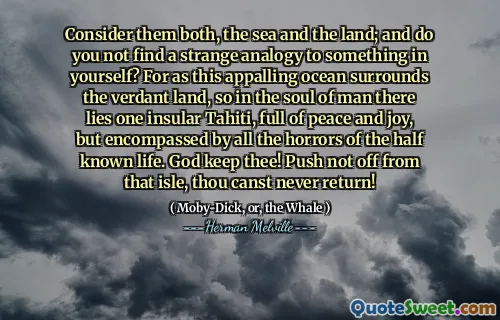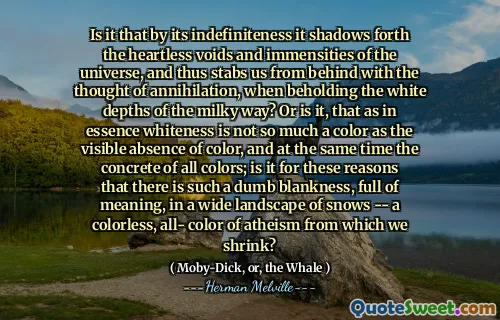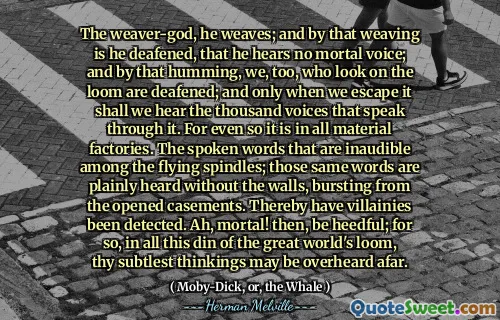
The weaver-god, he weaves; and by that weaving is he deafened, that he hears no mortal voice; and by that humming, we, too, who look on the loom are deafened; and only when we escape it shall we hear the thousand voices that speak through it. For even so it is in all material factories. The spoken words that are inaudible among the flying spindles; those same words are plainly heard without the walls, bursting from the opened casements. Thereby have villainies been detected. Ah, mortal! then, be heedful; for so, in all this din of the great world's loom, thy subtlest thinkings may be overheard afar.
The passage reflects on the metaphor of a weaver-god engaged in his craft, which leads to a sense of deafness to the voices of mortals. The act of weaving symbolizes the overwhelming nature of existence, where the noise of the loom drowns out the myriad of ideas and expressions that lie beyond it. This suggests that in the chaos of life, important thoughts and truths often remain unheard, obscured by the relentless rhythms of our daily endeavors.
The imagery presented emphasizes that, while one may be consumed by the tasks at hand, vital insights and perspectives can still emerge if one steps back. It warns individuals to be mindful as their innermost thoughts may resonate beyond their immediate surroundings. In essence, even amidst the noise and busyness of life, there lies a potential for deeper understanding and connection with the world outside one's immediate experience.











